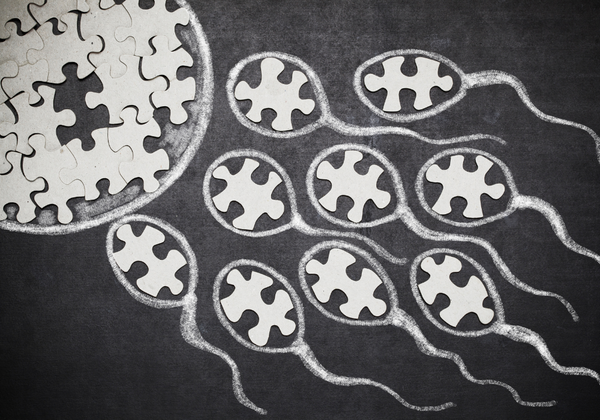
Article
Article
Posted on
 The main causes of female fertility problems are: problems with ovulation; tubal problems; problems with the womb or cervix; and sexual difficulties. Investigations need to determine why the sperm are not getting to the egg and why the fertilised egg is not implanting. This involves checking:
The main causes of female fertility problems are: problems with ovulation; tubal problems; problems with the womb or cervix; and sexual difficulties. Investigations need to determine why the sperm are not getting to the egg and why the fertilised egg is not implanting. This involves checking:
It is also important to consider the following points:
How long have you been really trying? On average it can take 8-12 months of having sex at the right time
Women are born with all the eggs they will ever have and many women look to do fertility tests to predict their future fertility potential. This can be really useful but it is so important to understand that there is always a result, and if the result is not what you are expecting it can leave you in a real panic about what you need to do. Therefore before you test think through what your options may be if you get a low result.
As a starting point, any woman seeking an indicator of her fertility potential should try and find out what age her mother was when she had her menopause. Generally, fertility stops up to ten years before a woman has her last period. So, subtracting ten from your mother’s menopausal age will give you a rough idea of when your fertility may be seriously compromised.
An AMH test helps to assess your ovarian reserve which gives an indication of a woman’s fertility potential. Anti-Mullerian Hormone (AMH) is a hormone produced by the antral (resting) follicles in the ovaries which diminishes as a woman ages, however, the test is only one factor and won’t tell you if there are any other underlying factors. The AMH test gives an indication of your ovarian reserves – it does not tell you about the quality of your eggs. It’s worth noting that women who have polycystic ovaries may have a very high reading as the cysts produce an excess of anti-mullerian hormone, so this test is not suitable to assess future fertility. Women taking the pill need to allow at least one cycle after stopping the pill before having a test.
The most significant factor by far is still your age. Older women will have more chromosomally abnormal eggs and therefore an increased risk of miscarriage. A younger woman with a low AMH level is likely to have a much better fertility potential than an older woman with a higher AMH level – the egg quality being the key issue. Some women find the test useful when they are thinking of having a baby to help determine how long they should try to conceive naturally, while others use it as an indicator to help decide whether to have IVF. If the test results are not such good news then you may need support in interpreting the results and planning the way forward. For some women it may be appropriate to consider prioritising planning pregnancy or even moving to a more assisted route sooner rather than later.
However, I am always concerned for women who do not have a partner and take the test to find out what their future fertility is looking like, because if it is discovered that they have a low ovarian reserve, it can often cause stress and angst in a future relationship.
“Women are born with all the eggs they will ever have and many women look to do fertility tests to predict their future fertility potential…before you test think through what your options may be if you get a low result.”
Antral follicles are small resting follicles on the ovary, about 2-8mm in diameter. Used in combination with an AMH test, an Antral Follicle Count is an even more reliable way of estimating your ovarian reserve. It also provides a useful indication of how well you are likely to respond to IVF treatment.
If a woman receives bad news about her ovarian reserve, her mindset becomes very negative and she tends to spiral down. Shock and devastation takes over and she can be left feeling helpless. It’s easy to fall into a negative mindset and hypnotherapy can provide techniques to help you cope and manage the situation but many women with low AMH scores go on to get pregnant.
I believe that acupuncture helps improve blood flow to the ovaries, as this reduces significantly with age. It also helps women to relax and experience a greater sense of wellbeing.
Many women know a lot about diets but not enough about nutrition in relation to fertility. A woman is born with all the eggs she is ever going to have, but I do believe you can improve the environment that the existing eggs are growing in by exploring and incorporating ‘anti -ageing’ foods and nutrients into your diet.
This is probably the first thing to suffer if you get a low AMH result as you can feel it’s not going to happen but don’t give up on it – it’s incredible how often the regularity of sex is the main ‘problem’ with conception!
There’s no doubt that if a woman receives a less than great AMH test result it can be very upsetting. So it’s about being proactive, moving forward and making sure that you are doing everything you can to increase your chances of having your own child before, if required, moving onto other means of assisted fertility such as egg donation.
If you found this informative make sure to read: Could these four things be hindering your chances of conception?

Article

Article

Article